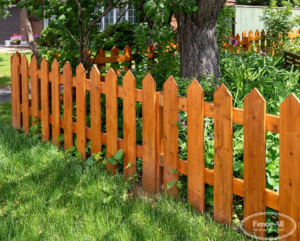SEO is an important skill that can help your brand get found online and attract more qualified traffic. It’s also a good way to build your brand’s authority and trustworthiness.
The best seo strategy involves creating content that adds value for your target audience and is optimized for search engines. This includes knowing your keywords and understanding the searcher’s intent. Click the Visit Website to learn more.

Keywords are the foundation of SEO, and they influence search engine rankings and content visibility. When used properly, keywords are a powerful tool for marketers to drive organic traffic and increase customer conversions. But, if used incorrectly, they can lead to poor website performance and even a search engine penalty. Here are some of the most common mistakes in keyword usage and how to avoid them.
The first mistake in using keywords is overstuffing them into content. This practice can lead to lower search engine rankings and reduce user engagement. It’s important to use keywords sparingly and keep them relevant to the overall page theme. The goal is to create quality content that is helpful for your target audience.
Another mistake is using the same keywords on multiple pages of your website. This is known as keyword cannibalization, and it’s a major cause of poor search engine ranking. This problem can be resolved by ensuring each page on your site targets a different keyword.
When choosing keywords, consider both the search volume and the competitiveness of each term. A high search volume indicates a large audience, but it also means that competition will be higher. Choosing low-competition keywords can improve your chances of getting noticed by search engines.
It’s also important to understand the buyer intent behind each keyword phrase. If your content doesn’t match the searcher’s intention, it will not be a good fit and will cause them to leave your website quickly. A great way to test this is to perform a quick site search of your own to see if you have any existing pages targeting the keywords you’re considering.
When it comes to body content, keyword placement is critical. Ideally, they should be placed early on in the content, as this helps search engines capture attention and improves visibility. Additionally, the key is to incorporate them naturally, without disrupting the natural flow of the text. Lastly, be sure to maintain a consistent keyword density throughout the body of your content to ensure a consistent search engine experience. If possible, try to maintain a ratio of 1 to 2 keywords per 100 words.
Content
Content is a critical component of SEO, providing visibility, attracting the right audience and enhancing user experience. A successful SEO content strategy requires keyword research, quality content writing and on-page optimization. Incorporating these components into your content will improve the searchability of your website and help you rank higher in SERPs.
The first step in creating a strong SEO content strategy is understanding your target audience and the problems they face. You can use social media, analytics tools and customer feedback to identify common themes in your audience’s questions and needs. This will allow you to develop accurate buyer personas and craft relevant content that speaks to their specific concerns.
Your goal should be to meet your audience’s search intent and answer their questions with informative, useful content that solves a problem. This will establish trust and brand loyalty, making your content more valuable to users and increase the likelihood of ranking high in search results. To achieve this, it is important to focus on topics that are searchable, provide value and include your keywords in the title and meta description.
Using different types of content is also essential for a strong SEO content marketing strategy. Adding long articles to your site for depth and detail, short-form posts for concise information and videos for visual learners can all contribute to search engine rankings. In addition, using internal links to connect pages on your site and pass link equity can also enhance your SEO performance.
The type of SEO content you create should be based on your target audience’s search intent, keywords and competitive analysis. You should also keep in mind that some keywords are more difficult to rank for than others. Although it is important to focus on your best performing keywords, you should always keep an eye out for new opportunities that may arise.
The most effective SEO content is original, readable and follows best practices for on-page SEO. It should be free of distracting elements like excessive keywords and a poor tone. It should also be formatted properly, such as incorporating header tags and using a clean layout to enhance readability and ease of navigation.
On-page optimization
In the world of search engine optimization (SEO), on-page optimization refers to techniques used on a website to improve its relevance and usefulness for users. This can include optimizing title tags, meta descriptions, content structure, and other aspects of a page. On-page optimization is different from off-page SEO, which involves promoting a website through links or other outside factors.
On-page SEO is a core part of any SEO strategy. Its goal is to ensure that a webpage contains quality, relevant content that fulfills the intent of a search query. This is important because Google prioritizes “people-first” content, meaning that it looks for websites that meet user needs and provide helpful information.
There are a number of different components to on-page optimization, including keyword research, URL structure, and metadata. The latter includes title tags and meta descriptions, which appear in search engine results pages (SERPs). They should accurately describe a page’s content and entice users to click through. In addition, it’s important to use descriptive and concise keywords in page titles and descriptions.
Another aspect of on-page optimization is ensuring that a page’s content is structured correctly. This means using headings to organize content and dividing it into paragraphs. It also helps to use bullet points and other visual elements to make content more scannable.
Finally, on-page optimization involves ensuring that a page is mobile friendly. This is important because more and more searches are done on mobile devices. A website that isn’t optimized for mobile use can suffer from poor rankings and low traffic.
A final aspect of on-page optimization is making sure that a page loads quickly. This can be accomplished by using smaller images and minimizing file sizes. It can also be achieved by using browser caching, which stores copies of frequently visited pages on a server so they load more quickly the next time a user visits.
Although keywords remain a critical element of on-page SEO, they’re no longer the only factor that determines whether or not a page ranks well in a search engine result. A variety of other “keyword-agnostic” factors can also impact a page’s ranking, including its usability and engagement.
Link building
When it comes to SEO, link building is one of the most important aspects. Search engines like Google look at the number of high-quality inbound links to a page when determining its ranking. This is because backlinks are seen as votes for the quality of a webpage and help them determine whether it deserves higher rankings. However, there are a few things to keep in mind when it comes to link building. First of all, it is important to do your research before engaging in any link-building campaigns. There are many different ways to build links, and some methods are more effective than others. Secondly, you should only use natural link building techniques. This means that you should not buy links or engage in other manipulation techniques (also known as black-hat SEO).
You should also remember that building quality links takes time, and it is important to track your progress. You can do this by looking at your traffic records and checking your referring domains. This will help you see whether your efforts are paying off. In addition, you should also consider the other benefits of building links, such as establishing yourself as an expert in your industry and gaining referral traffic.
To start, you should create content that is valuable to your target audience. This will help you build a relationship with your readers, and they may be more likely to link to your site in the future. You can also reach out to bloggers and influencers in your niche to ask them to link to your website. However, it is important to note that most people will only link to your site if it is in their audience’s or their own interest.
In order to increase the number of incoming links to your site, you should focus on increasing your Domain Authority and Brand Authority. These metrics are provided by Ahrefs and help you understand how well your website will rank in search results. While Domain Authority is more focused on the strength of a single webpage, Brand Authority is based on how well a brand is recognized in the market.



